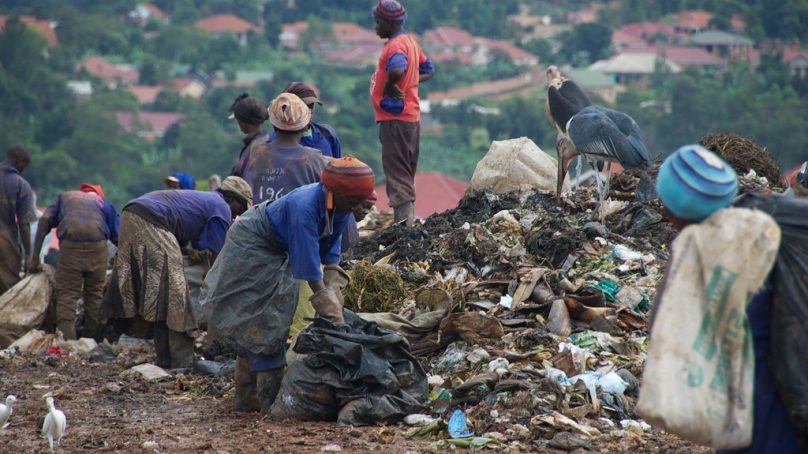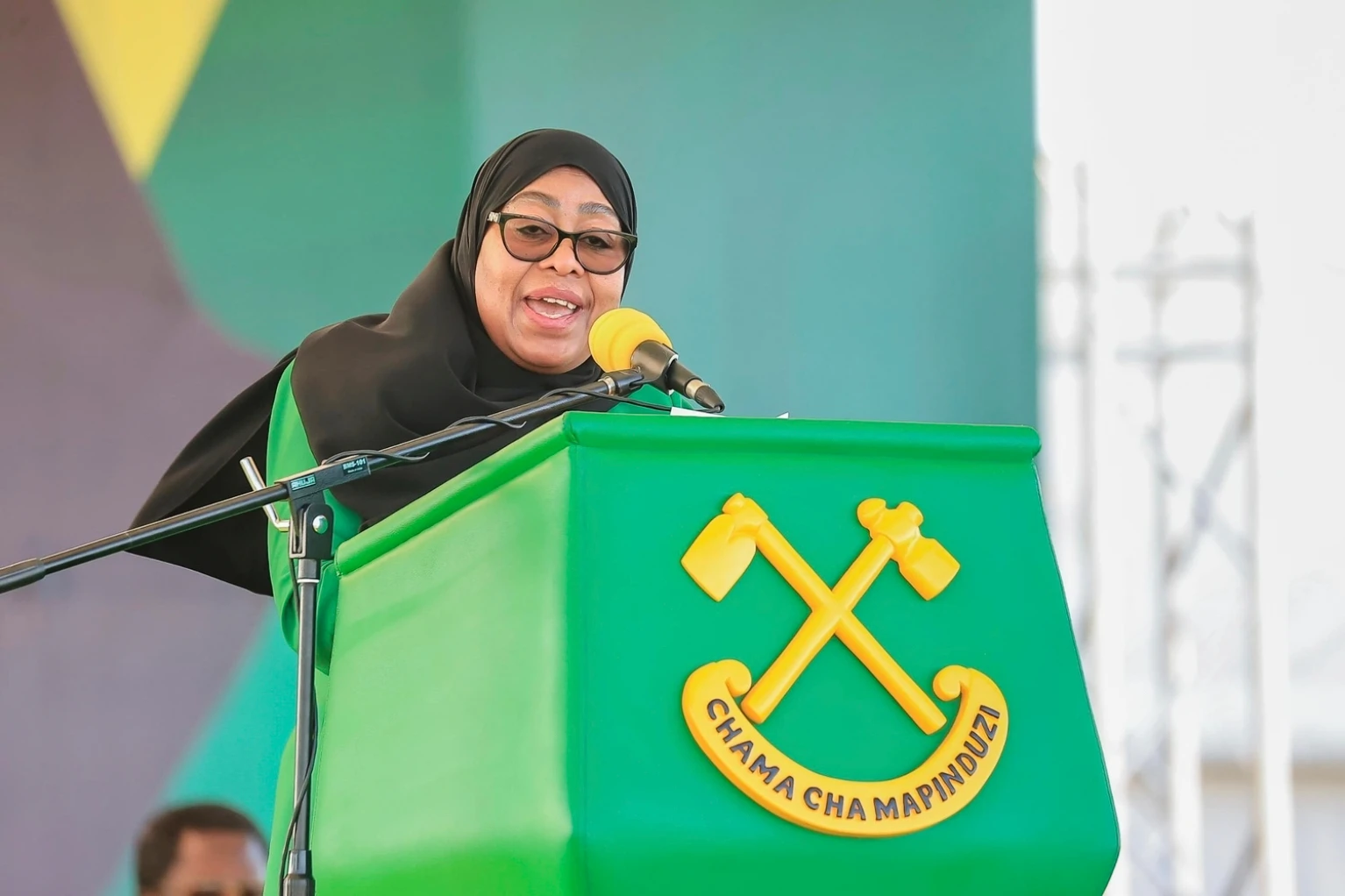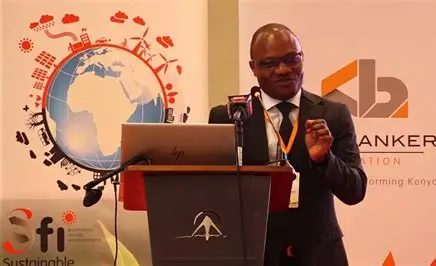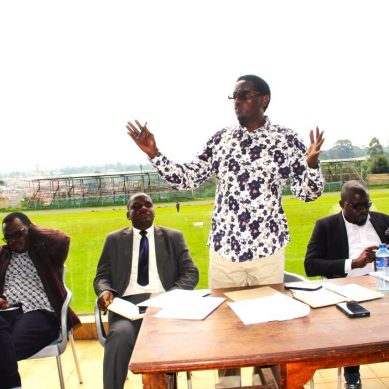
Amnesty International (2024) released Bhopal 40 Years of Injustice, a report that documents how entrenched environmental racism, through systemic and intergenerational discrimination, has enabled the lack of accountability of both state and corporate actors and the failure to ensure a comprehensive reparations programme.
Responses from the companies are available in the annex of the report. Environmental injustices punctuate the whole globe and in many cases, are entrenched by the governors of the countries. It is either environmental racism or ethnic nepotism. However, the boundary between the two is thin because they both involve onr ethnic group which assumes, thinks, believes and is convinced of its superiority over other ethnicities. They are called supremacists.
Environmental racism
The phrase environmental racism was coined by civil rights leader Dr Benjamin F. Chavis Jr. He defined it as the intentional siting of polluting and waste facilities in poor communities (Maudlyne Ihejirika 2023). However, if we take the environment to be multidimensional with four dimensions (ecological-biological, socio-cultural, socio-economic and temporal) discrimination in all these dimensions is environmental racism.
People or communities of people are racially discriminated ecological-biologically, socioeconomically, socio-culturally and temporally.
For example, projects and programmes intended to improve the quality of life in poor communities (the discriminated against), tend to be allocated inadequate funds; the funds are stolen by contractors, politicians and accountants; and many times, inappropriate timescales, leading to their failure. At the end of the project or programme cycle, the people and/or communities are worse off than before.
Instead, the people or communities are accused of being lazy and responsible for their poverty by those in power. Power does not bother about conquering and freeing the people and communities of people from the scourge of environmental poverty. It becomes central to the proliferation of environmental poverty Oweyegha-Afunaduula, 2025) and expansion of the environment of poverty (e.g. BusinessDay, 2024). Borja Santos (2021) has written that environmental poverty already affects millions of people around the world.
Consequently, escaping the poverty-environment trap (Kirsten, Frederich, Bonga-Bonga, Lumengo and Biyase, Mduduzi, 2024) is next to impossible despite heavy investments in conquering poverty.
Environmental racism refers to the disproportionate burden of environmental pollution and hazards placed on poor or low-income communities. This can manifest in various ways such as the siting of polluting industries near minority neighbourhoods, dumping of wastes in areas occupied by poor origins, the lack of green spaces and access to clean water in these areas, and the effects of climate change disproportionately impacting these communities. It is an expression of both social injustice and environmental injustice.
It exists largely because of policies and practices that have historically, and to this day, favoured the health, well-being, and consumer choices of the well-to-do communities over those of non- low-income communities. Therefore, environmental racism’s definition speaks to the environmental hazards such as the exposure of communities to waste dumping in Kitezi, in Greater Kampala – which are not coincidental – and the policies, regulations and laws burdening the environment in marginalised communities (see also Insider, 2024).
Environmental racism is a type of systemic racism where people from underrepresented communities are inequitably impacted by health issues resulting from policies that force them to live close to environmental hazards. Given their exposure to these sources of toxic waste, people from these communities commonly deal with inequitable rates of chronic health issues. A 2021 study from Science Advances revealed that Black, Latinx and Asian Americans, as well as individuals from other communities of color, are exposed to higher levels of fine particle matter from emissions compared to their white peers (Smith, 2023)
In Uganda, environmental racism has become one of the main threats to a culture of democracy mainly because of the commitment of present-day rulers to the practice of apartheid style governance (e.g, Oweyegha-Afunaduula, 2022) and apartheid-like education (Oweyegha-Afunaduula, 2023). There are now schools to which only the children of migrant groups and the rich, politically powerful ruling class go. Fees in such schools are extremely high. We cannot entrench and perpetuate apartheid–type governance of education from where it ended and then pretend to be in for integration of people and uniting them (Oweyegha-Afunaduula, 2023).
Environmental racism has sprouted supersonically in Musevenite times to such an extent that things like China Town in Lugogo and Indian quarters in Kampala, are now recognisable. There are schools and hospitals now, which are racially segregated and only a few children of the rich can go for their education and medication in them. The poor Ugandan are left to suffer in poorly equipped and poorly staffed schools and hospitals.
In secondary schools the word of the president was enough to plant the seed of segregation between science and arts teachers financially by paying science teachers far more than arts teachers. This has made the teaching and learning environment for both teachers and students highly unfriendly. We need researchers to tell us the impact of this on the quality of the products of our education system.
Environmental racism is a key component of structural racism. Genuine effort to dismantle structural racism must address environmental inequities that have profound effects on the health and wellbeing of entire communities (Ziyad Al-Aly, 2022).
When we talk about environmental racism, we are talking about the disproportionate burden of environmental hazards placed on people of black skin. This oppression is often achieved systemically, through policies and practices that effectively place low-income and communities of black people in close proximity to polluting facilities like power stations, plastics plants and methane gas pipelines or to infrastructure like major highways (The Climate Reality Project, 2021).
We saw what happened to our people who lived in close proximity to the Kitezi Dumpsite site near Kampala. Many died when the dump moved like molten volcanic material and covered them alive. Some bodies were recovered but some were not. Survivors were never compensated although promises to do so were made by the polticians. Fighting environmental racism means doing what is fair and morally right.
Environmental racism continues to be a significant issue in Uganda today. It manifests in various forms, including land insecurity, displacement and disproportionate exposure to environmental hazards. For example, communities near oil extraction areas are often faced with land loss, environmental degradation and displacement. Additionally, climate change impacts such as drought and floods, disproportionately affect vulnerable populations, highlighting the social injustice embedded in environmental issues (see Kisubi, 2024).
Ethnic nepotism
Ethnic nepotism is integral to racism and, like environmental racism, it promotes apartheid style leadership, governance and lifestyles whereby one ethnic group captures virtually all civic spaces, leadership and governance with other ethnic groups effectively excluded from leadership, governance and business and only act second fiddle to those of the ethnic group in power.
In apartheid South Africa, the excluded group was the African race, while Indians and the coloured would be tolerated to serve second fiddle to the white racists. It was a crude system that took all the ecologically-productive land from the Africans, leaving them to the ecologically-poor land, where they were given sham independence in what were called Bantustans to entrench separate development.
Something like this seems to have sprouted in Uganda over the last 40 years where one small ethnic group dominated by people of Tutsi extraction seems to be the cream of leadership, governance, in all civic spaces, and to access land easily through land grabbing, and quality education and quality health at the expense of the other indigenous ethnicities. There is evidence that after crumbling the health sector in Uganda, the majority of those who find it easy to seek medical treatment abroad belong to the small ethnic group, thereby undermining the Anti-Sectarianism law of the country.
Strategically the small ethnic group in power constitutionally created an artificial indigenous group they baptised “Banyarwanda”, which functionally is the equivalent of the defunct white racist group that dominated power in Apartheid South Africa from 1948 to 1992. Nepotism and ethnicity, and for that matter, ethnic nepotism, are jointly an anti-thesis of democratisation.
When clandestinely or openly stressed in leadership, governance and lifestyles, nepotism, ethnicity and ethnic nepotism are tools of de-democratisation. They are also tools of corruption. That is why we talk of nepotic corruption (when power facilitated others to freely engage in corruption), ethnic corruption (when most corruption is ethnically segregated). One time the government’s Inspector Geral of Government (IGG), Beti Kamya, sought to fight corruption using Lyfe-Style Audit, which had successfully routed corruption out of Singapore.
However, President Tibuhaburwa Museveni discouraged her arguing that the audit would encourage the looters to invest their stolen money out of the country. He seemed to suggest that it was okay to steal public money so long as you invest it in the country. Most of the looters were in power or connected to power.
Ethnicity
Ethnicity as a political tool is frequently helped to thrive through political ethnicisation and ethnic politicisation (Oweyegha-Afunaduula, 2023), which processes are jointly taking place in Uganda today. Ethnic politicisation is when an ethnic group is politicised, or when an ethnic identity and loyalty is deliberately moved from the private sphere to the public sphere. Political decisions are made, not to service the whole society, but to benefit a particular ethnic group or identity.
It is identity politics ethnicised (Oweyegha-Afunaduula, 2023). When this happens in a country where the societal ethico-moral fabric derives from the multiple indigenous groups, it distorts the identities of the groups through the penetration, conquest and occupation by the dominant ethnic group politically, militarily, socially, culturally, ecologically, environmentally and even genetically through intermarriages between that group and the other groups to enhance its genetic spread through the populations.
This way, the genetic composition of the indigenous groups is altered so that they can no longer claim to be indigenous (Oweyegha-Afunaduula, 2023).
Thus, apartheid-like governance and education in Uganda is ecological-biologically, socio-economically, socioculturally and temporally widening the gap between the poor and the rich, with the rich tending to be a small exogenous ethnic group with political power as well, buttressed by Indians, Chinese and other migratory groups, just as was the case in the defunct apartheids state of South Africa.
This explains the rising tendency to expose the marginalised communities of Uganda to disproportionately bear the brunt of environmental degradation and climate change impacts. It is increasingly manifesting as unequal access to resources, exposure to pollution, and displacement due to deforestation, land grabbing, mining or natural disasters.
The poor have been denied quality schools and quality health and land is being grabbed from them. The poor are compelled to go to the hospitals which only the rich can afford. In my article published in Charmar News and titled “Why is Uganda Likely to be Ungovernable Beyond President Tibuhaburwa Museveni?” I gave confounding of ethnicity through ethnic politicisation and political ethnicisation as reason number 2 why the country will be ungovernable after President Tibuhaburwa leaves power (Oweyegha-Afunaduula, 2025).
Environmental justice
Environmental racism and ethnic nepotism violate environmental justice. Among environmental justice advocates, there is an understanding that these inequalities are not coincidences – they stem from a long history of racist and discriminatory practices that have allowed industry to pollute with impunity in disadvantaged communities (Frida Garza, 2021). Some Ugandan academic workers have addressed the issue of environmental justice in Uganda (e.g., Afunaduula and Oweyegha-Afunaduula,2005; Kisubi, 2024; and Oweyegha-Afunaduula, 2023). Mutesasira (2024) recently addressed climate justice, an aspect of environmental justice, and the judicial application of environmental law principles in Uganda.
However, without the commitment of the political leaders and governor, who actually make decisions, to environmental [and climate justice] there will be no achievement in overall justice in the country. The talk of development, transformation and progress and security of future will remain meaningless, especially if people of exogenous origin continue to grab the land and futures of the indigenous communities.
Dickerson, cited by Rochaun and Meadows-Fernandez,2020) stated that “[If you’re not] educating people at the community level or trying to make some type of policy change, then you’re not really doing your job,” There is need for policy change to stem rising environmental racism and ethnic nepotism in the Uganda and to raise the status of environmental justice in the country in the 21st Century and beyond.
Ultimately, we must acknowledge that environmental equity cannot be achieved without racial equity (Smith cited by Rochaun and Meadows-Fernandez, 2020) and ethnic equity in Uganda. Emphasising ethnic conquest and ethnic domination will be counter-productive and dangerous in the long for those for those not longing critically at the consequences of practicing apartheid style governance in Uganda.
For God and my country.
- A Tell report / By Oweyegha-Afunaduula / Environmental Historian and Conservationist Centre for – Critical Thinking and Alternative Analysis (CCTAA), Seeta, Mukono, Uganda.
About the Centre for Critical Thinking and Alternative Analysis (CCTAA)
The CCTAA was innovated by Hyuha Mukwanason, Oweyegha-Afunaduula and Mahir Balunywa in 2019 to the rising decline in the capacity of graduates in Uganda and beyond to engage in critical thinking and reason coherently besides excellence in academics and academic production. The three scholars were convinced that after academic achievement the world outside the ivory tower needed graduates that can think critically and reason coherently towards making society and the environment better for human gratification. They reasoned between themselves and reached the conclusion that disciplinary education did not only narrow the thinking and reasoning of those exposed to it but restricted the opportunity to excel in critical thinking and reasoning, which are the ultimate aim of education. They were dismayed by the truism that the products of disciplinary education find it difficult to tick outside the boundaries of their disciplines; that when they provide solutions to problems that do not recognise the artificial boundaries between knowledges, their solutions become the new problems. They decided that the answer was a new and different medium of learning and innovating, which they characterised as “The Centre for Critical Thinking and Alternative Analysis” (CCTAA).For God and my country








